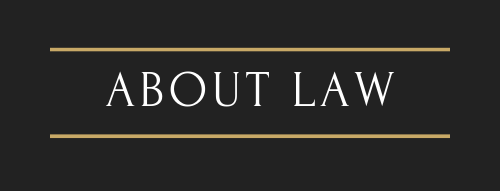Chapter 7 Bankruptcy
When a person is unable to repay their financial obligations, Chapter 7 Bankruptcy may be the appropriate option. However, it’s important to be aware that when a person is unable to repay their debts, they should understand the most common options that are available. In the United States, there are two primary forms of personal bankruptcy:
- Chapter 7
- Chapter 13
As the team from The Law Offices of Neil Crane will share, these options have distinct features, requirements, and implications for the individual filing for bankruptcy. In this comprehensive guide, we will explore the different personal bankruptcy options to help you understand which may be most suitable for your financial situation.
Chapter 7
Chapter 7 is a type of bankruptcy filing that allows for quick debt relief. This form of bankruptcy Is often referred to as a “liquidation” or “straight” bankruptcy” for those individuals with limited income and assets. This type of bankruptcy allows the debtor to discharge most of their unsecured debts, such as credit card debts, medical bills, and personal loans, without the need for a repayment plan. However, to file for Chapter 7, debtors must qualify for relief by passing a means test that compares their income to the median income in their state of residence. If the debtor’s income is below the median, they are eligible to file for Chapter 7. However, if their income is above the median, they may need to consider other bankruptcy options, such as Chapter 13.
Through Chapter 7, the tour appoints a trustee who will oversee the process. The trustee will carefully review the debtors assets and financial obligations to determine which assets may be liquidated to pay off creditors. Exemptions are available to protect certain assets, such as a modest home, car, and necessary household items. However, non-exempt assets can be sold, and the proceeds distributed among the creditors.
Although Chapter 7 offers a fresh financial start, it does come with some significant drawbacks. A Chapter 7 will remain on the debtor’s credit report for ten years, which may affect their ability to secure loans, credit cards, or housing in the future.
Chapter 13 Bankruptcy
Chapter 13 bankruptcy is a personal bankruptcy option for individuals with a regular income and the ability to pay back a portion of their debts over time. Commonly known as the wage earner’s plan, Chapter 13 allows debtors to keep their assets, including their home and car, while they work towards repaying their debts.
To be eligible for Chapter 13 bankruptcy, the debtor must have a regular income and not exceed certain debt limits. As of September 2021, the debt limits are $419,275 for unsecured debts and $1,257,850 for secured debts. Because these limits are subject to change, it’s important to speak with a lawyer or financial advisor for the most up-to-date information.
While Chapter 13 bankruptcy does alleviate some debts, it does not fully liquidate them like Chapter 7. Chapter 13 bankruptcy requires the debtor to work with a trustee to develop a repayment plan. In these cases, debts are not fully liquidated and debts are paid back over the course of three to five years. The plan will outline how the debtor will pay off their debts, including any arrears on secured debts like a mortgage or car loan. During this time, creditors are prohibited from taking collection actions against the debtor.
Chapter 13 bankruptcy offers several advantages to filers and can even offer the opportunity for a debtor to prevent their home from foreclosure. In some cases, through the restructuring of debts that Chapter 13 allows, filers can include their mortgage arrears in their repayment plan. In turn, taking action can allow debtors to catch up on missed payments and avoid losing their home. Additionally, Chapter 13 bankruptcy may only remain on the debtor’s credit report for seven years, making it a potentially more favorable option for those looking to rebuild their credit in the future.
When a person is experiencing financial challenges, bankruptcy may be the most appropriate next step but it will be critical for debtors to understand their options and the potential implications for each. It is highly recommended to consult with a qualified attorney or financial advisor to determine the best course of action for your unique circumstances. While bankruptcy is undoubtedly a challenging process, it can also be a crucial step towards regaining financial stability and achieving a fresh start for those struggling with overwhelming debt.
